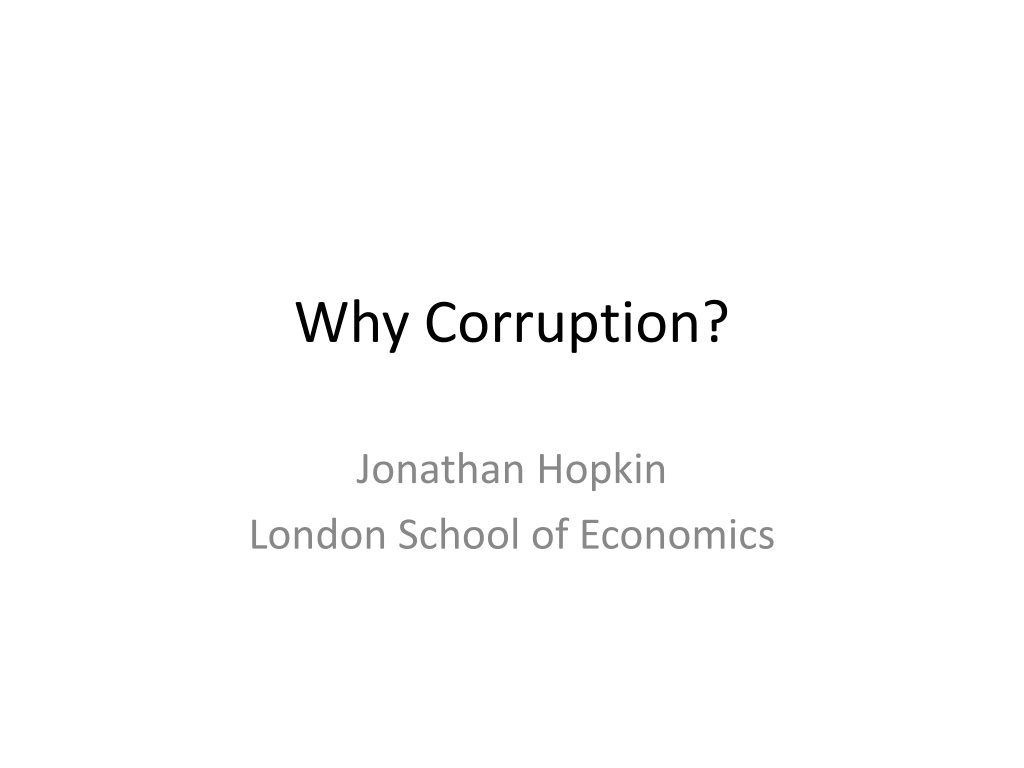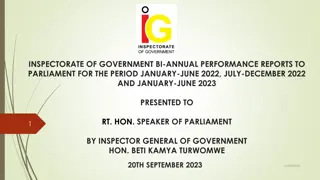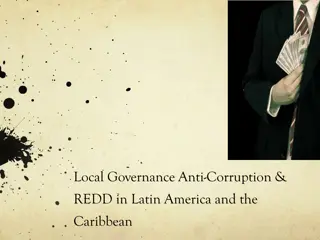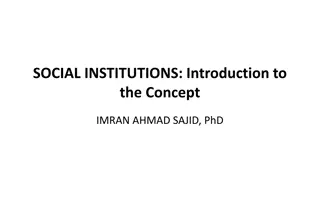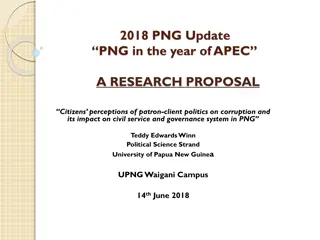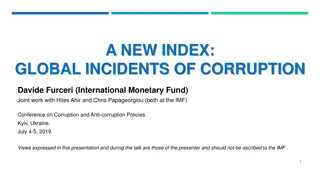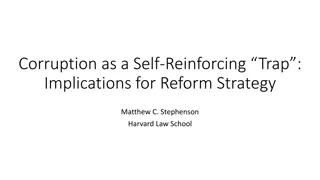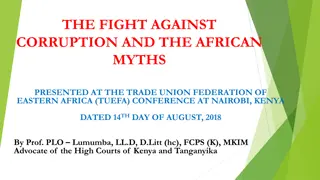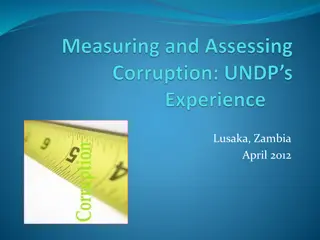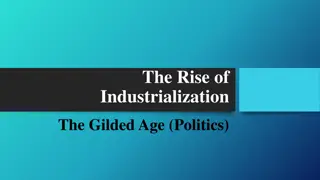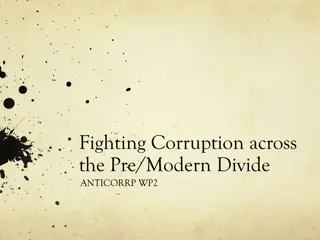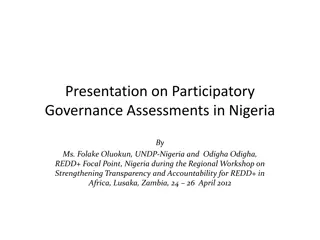Understanding Corruption and Its Implications on Institutions and Society
Corruption, as discussed by Jonathan Hopkin from the London School of Economics, is viewed through various lenses - from a reflection of traditional hierarchical ties in modernization theory to the inadequacy of political institutions. Economists highlight how corruption distorts market allocation. While the UK may not face significant corruption in the narrow sense, issues exist due to the intertwined relationships between business and politics. Ultimately, the need for political legitimacy and economic regulation emerges as key to addressing corruption.
Download Presentation

Please find below an Image/Link to download the presentation.
The content on the website is provided AS IS for your information and personal use only. It may not be sold, licensed, or shared on other websites without obtaining consent from the author. Download presentation by click this link. If you encounter any issues during the download, it is possible that the publisher has removed the file from their server.
E N D
Presentation Transcript
Why Corruption? Jonathan Hopkin London School of Economics
Modernization theory Corruption an expression of traditional hierarchical ties that undermine workings of formal institutions (Banfield Amoral familism ) Rule of law not secured, economic exchange embedded in informal institutions that work around market regulations Corruption greases the wheels
Political institutions Corruption the result of inadequate institutions that fail to deliver representation and accountability Competitive electoral systems required to kick rascals out (But what if voters want the rascal?)
Economists Corruption and rent-seeking - Distort market allocation, lead to inefficiency But why corruption? Disfunctional institutions as responsible Over-regulation incentives for bribe-seeking and bribe-giving (Common law vs Roman law)
And the UK? Corruption in the narrow sense not a big deal in UK However, revolving door between business and politics creates issues Overbearing power of financial sector to achieve desired policy corrupt in broad sense. Obsession with minutiae (MPs expenses, top civil service salaries)
Whats our problem? Politics Need to define what the issue is: economic, political, ethical, trust? MPs expenses easily fixed in practical terms, but political legitimacy issue stems from broader question of representativeness of political system (no constitution, distorting electoral laws, weak parties)
Whats our problem? Economics Financial sector problems a matter of regulation and political power. Plutonomy (Citigroup memo). Society run by the super-rich in the interests of the super- rich Impossible to regulate business properly. Fiscal adjustment hindered by ease of tax evasion. Misallocation of resources.
Conclusion: Trust and Participation Successful resolution requires rebalancing by strengthening political legitimacy of the state. But are citizens sufficiently concerned to act? If not, no big deal. British state effective enough. But democratic disaffection will continue, and future challenges may require citizens to have high trust in the state.
